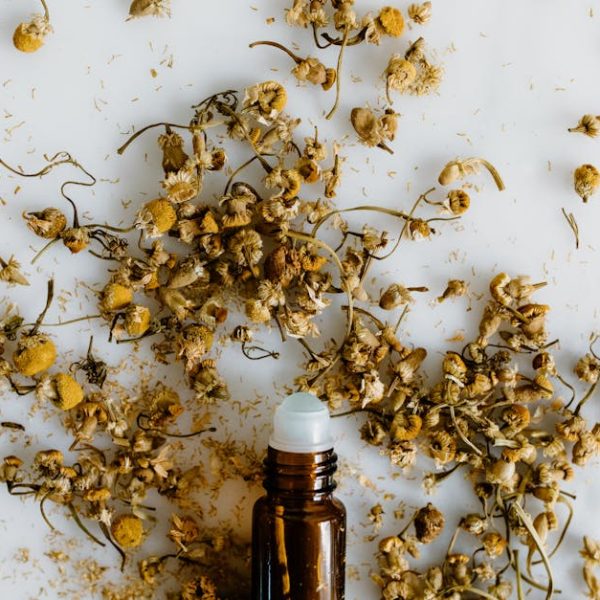It’s no surprise that a sore throat can transform a routine day into a tiresome marathon of discomfort and pain. But don’t worry, there are many remedies, both traditional and alternative, that can help soothe that aching throat and restore your voice to its full strength.
Understanding the Cause of a Sore Throat
A sore throat, or pharyngitis, is primarily caused by viral and bacterial infections. Viruses, such as the common cold or flu virus, are the most frequent culprits. However, bacteria, notably Streptococcus (which causes strep throat), can also be to blame. Allergies and dry air can irritate the throat and provoke symptoms similar to those of an infection.
Each cause entails its specific set of symptoms. For example, a sore throat from a viral infection could be accompanied by mild symptoms like a runny nose and cough, whereas bacterial infections can often result in high fever and severe throat pain.
![]() Pro Tip: Identifying the cause of your sore throat isn’t just academic; it’s essential for determining the most suitable treatment.
Pro Tip: Identifying the cause of your sore throat isn’t just academic; it’s essential for determining the most suitable treatment.
Best Practice: If your sore throat persists for more than a week or if it’s accompanied by high fever, difficulty swallowing or breathing, rash or joint pain, make sure to consult a healthcare professional promptly.
Remedy 1: Hydration and Warm Fluids
Keeping yourself well-hydrated is vital when you’re dealing with a sore throat. Warm fluids, in particular, can be soothing and aid in relieving inflammation and pain. Consider herbal teas, warm water with honey or lemon, or even back to basics – a cup of hot water.
Conversely, steer clear of caffeinated or alcoholic beverages, which can dehydrate your body and worsen the discomfort.
![]() Pro Tip: Consider using a reusable water bottle to make hydration easier and more convenient.
Pro Tip: Consider using a reusable water bottle to make hydration easier and more convenient.
Best Practice: Opt for warm fluids with anti-inflammatory properties such as chamomile tea or a beverage with turmeric and ginger—these can be more effective in soothing sore throat symptoms.
Remedy 2: Over-the-Counter Medications
Over-the-counter (OTC) remedies like lozenges or throat sprays can directly target and alleviate your sore throat pain. Antipyretics and analgesics, such as ibuprofen or acetaminophen, can also be beneficial, not just to ease pain but also to reduce fever if that’s an issue.
Remember, while these medications are accessible without a prescription, instructions on the packaging should always be followed diligently.
Pro Tip: Combining an OTC medication with home remedies can be an efficient way to relieve a sore throat.
Best Practice: Consult with a pharmacist about which OTC medication might best suit your symptoms.
At this point, you may be wondering about the benefits and drawbacks of various warm fluids or medications. The following table provides a quick overview – but remember, individual responses can vary.
Remedy 3: Homeopathic and Natural Alternatives
There are also a surprising number of homeopathic remedies that can offer relief, with many ingredients likely already in your pantry. Gargling warm saltwater is a time-honoured remedy that works by drawing excess water from inflamed tissues in the throat, reducing inflammation and pain.
Utilizing a humidifier, particularly during the dry winter months, can also alleviate discomfort by moistening your nasal and throat passages and keeping them from drying out.
Let’s look at the pros and cons of these different treatments.
| Remedy | Pros | Cons |
|---|---|---|
| Homeopathic Remedies | Natural, low risk of side effects, inexpensive | May not be as potent or quick-acting as other remedies |
| Over-the-Counter Medications | Fast-acting, readily available, variety of options | Can have side-effects; overuse can cause other health complications |
![]() Pro Tip: Incorporate these remedies as part of your daily routine to prevent future occurrences.
Pro Tip: Incorporate these remedies as part of your daily routine to prevent future occurrences.
Best Practice: Try out different remedies to find the most effective one for your individual symptoms. Remember, what works for someone else may not necessarily work for you.
Prevention of Sore Throat Pain
Just like any health condition, prevention is usually the best medicine when it comes to a sore throat. This means maintaining good personal hygiene, avoiding sharing dishes or glasses with those who are sick, and keeping your immune system strong.
Pro Tip: A balanced diet, regular exercise, sufficient sleep, and low stress levels all work towards a stronger immune system, reducing your likelihood of catching a virus or infection.
Best Practice: Schedule regular check-ups and don’t ignore persistent symptoms. This can be an indicator of other health conditions, or a hint that your immune system isn’t performing optimally.
Finally, a checklist for sore throat prevention.
- Maintain personal hygiene
- Avoid close contact with sick individuals
- Eat a balanced diet
- Exercise regularly
- Ensure you get enough sleep
- Minimize stress levels
- Stay hydrated
Treating a sore throat does not have to be a painful ordeal. With an arsenal of home, natural, and OTC remedies at your disposal, you can navigate your way towards a pain-free throat in no time. Just remember to be mindful of prevention methods and incorporate them into your daily routine for the best possible defence against a sore throat. Now go on and conquer the day!
Key Takeaway:
- Understanding the cause of your sore throat is critical for choosing the most suitable treatment. If symptoms persist or worsen, it’s important to seek medical advice promptly.
- Staying hydrated, particularly with warm fluids like herbal teas or warm water with honey, is comforting for a sore throat.
- Over-the-counter remedies such as lozenges or throat sprays can be helpful, but the use must be as per instructions.
- Homeopathic or natural alternatives like gargling saltwater or using a humidifier can provide relief too.
- Preventing sore throats emphasizes maintaining personal hygiene, adhering to a healthy lifestyle, and avoiding close contact with sick individuals to bolster your immune system.
A sore throat can be relentless and irritating, but with the right understanding and approach, it is absolutely manageable. Experiment with various remedies, be patient with recovery, and maintain a healthy lifestyle to give your immune system the best possible support. Remember, your body is capable of incredible things when given the care it needs.
FAQs
Q: What warm beverages can help soothe a sore throat?
A: Drinks like herbal teas, warm water with honey, or turmeric and ginger-infused beverages can be particularly helpful in soothing sore throat symptoms due to their anti-inflammatory properties.
Q: Can over-the-counter medications completely cure a sore throat?
A: While over-the-counter medications can help relieve the symptoms of a sore throat, they may not necessarily eliminate the root cause, especially if it’s a viral or bacterial infection.
Q: Are homeopathic remedies effective in soothing a sore throat?
A: Yes, many homeopathic remedies, such as gargling warm saltwater or using a humidifier, can help alleviate sore throat symptoms. However, their effectiveness may vary from person to person.
Q: How can I prevent recurring sore throats?
A: By maintaining good personal hygiene, avoiding close contact with sick individuals, incorporating a balanced diet, regular exercise, ample sleep, and keeping stress levels low, you can boost your immune system and lower the likelihood of getting a sore throat.
Q: What symptoms should trigger a visit to the doctor when suffering from a sore throat?
A: If your sore throat persists for more than a week, or if you experience additional symptoms like high fever, difficulty swallowing or breathing, rash, or joint pain, you should seek medical attention promptly.
We hope you found this article helpful. Share it with anyone who might find it useful and discover more health-related posts on our website. Have a productive and healthy day ahead!






